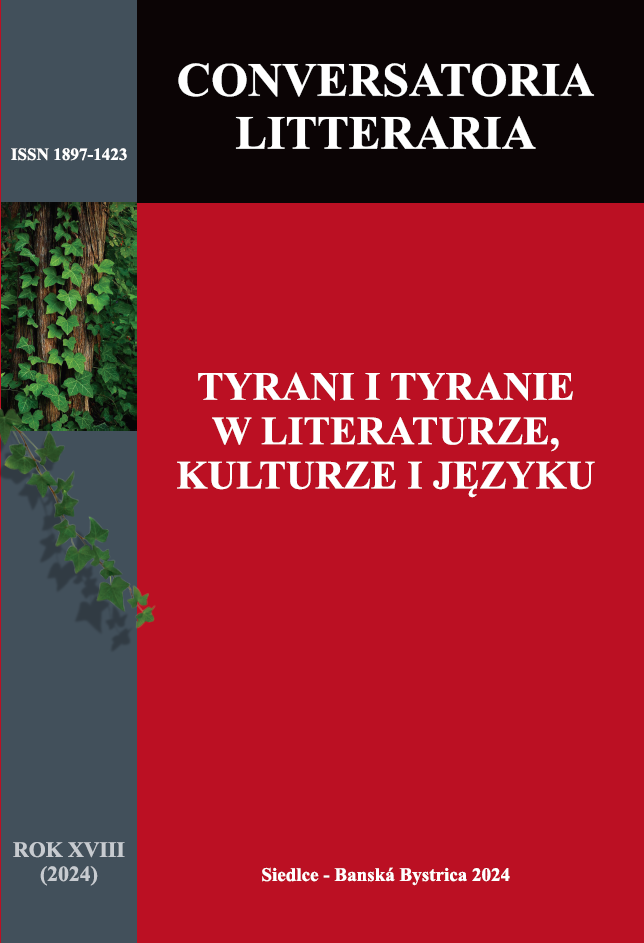Tyrani a tyranie: kultúrny konštrukt alebo ľudská univerzália?
DOI:
https://doi.org/10.34739/clit.2024.18.01Słowa kluczowe:
tyrants, tyranny, cultural construct, human universal, Slovak and Polish Romantic poetry, biocultural interpretationAbstrakt
The article develops the thesis of anthropologist Ch. Boehm according to whom, the aversion to subordination, which is culturally prominent but also oppressed, is one of the universal human political predispositions, i.e. human universals stemming from human nature as well as one of the essential and influential driving forces of the evolution of the human species. In the human biocultural nature, not only rests the concept of the "noble egalitarian savage" but also on a no less powerful concept of the "despotic tyrant". The study tests the explanatory power of this thesis by attempting a biocultural, consilience-based interpretation of agonistic structures in the Slovak Romantic poem Mor ho! by Samo Chalupka and in the Polish Romantic poem Redut Ordon by Adam Mickiewicz. The author concludes that these poems articulate and address not only the historically specific desires of the Slovak Romantic generation for freedom but also universal features of human nature.
Pobrania
Pobrania
Opublikowane
Numer
Dział
Licencja
Prawa autorskie (c) 2024 Authors

Utwór dostępny jest na licencji Creative Commons Uznanie autorstwa – Bez utworów zależnych 4.0 Międzynarodowe.




